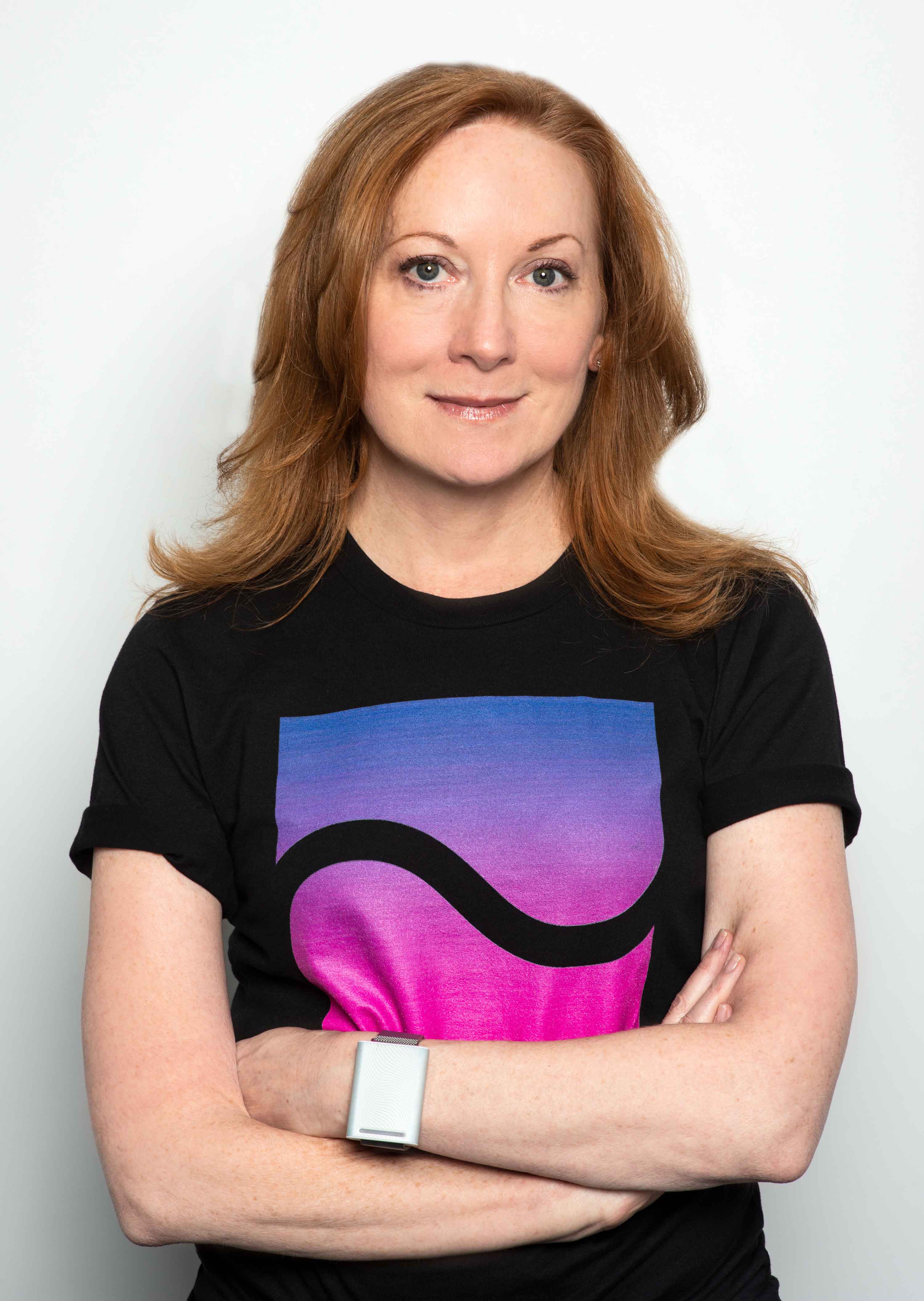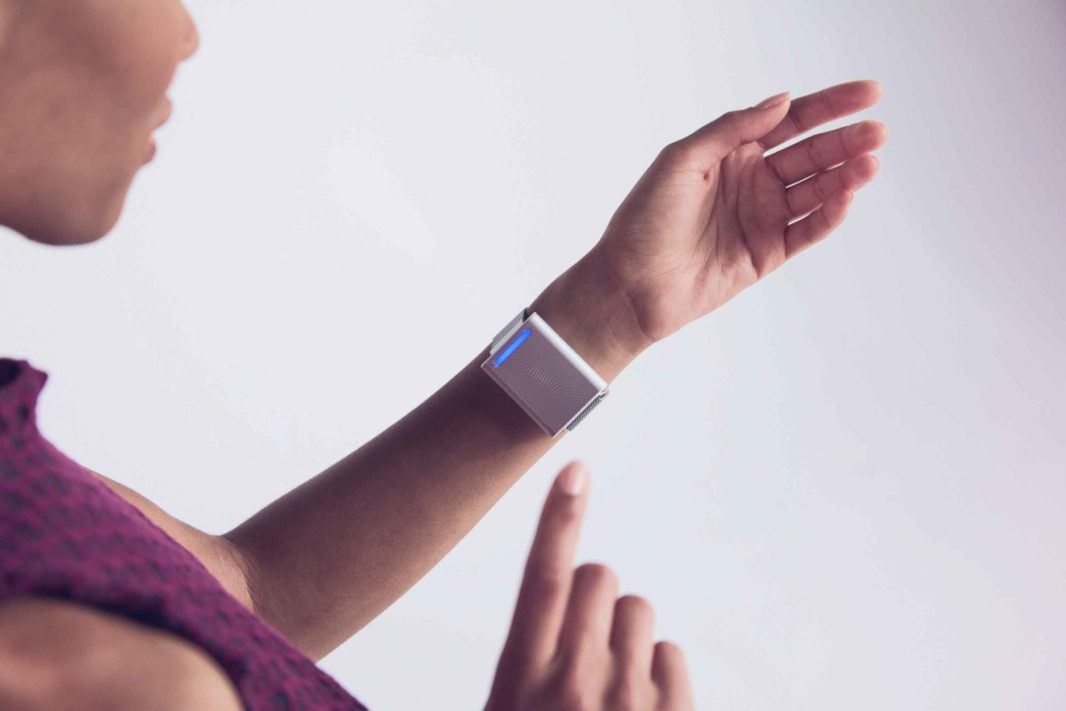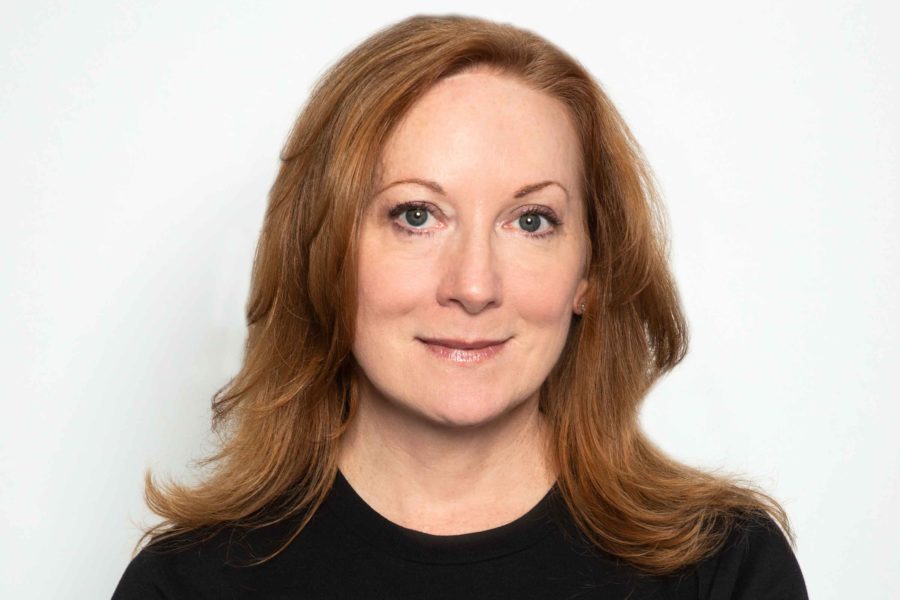
Courtesy of Embr Labs
Embr Labs CEO Liz Gazda grew up in California, lived in the Netherlands, and has found a home in Boston working in tech.
Although Elizabeth Gazda has been at the helm of local tech startup Embr Labs as CEO for only six months, she has been drawn to entrepreneurial pursuits since she was a teenager. She says, “I’ve been working since I was 14 years old and always had this independent streak of wanting to create new things.”
Before coming to Boston in 1999, Gazda received her MBA in the Netherlands where she then worked for Philips Consumer Electronics and co-founded financial tech company, Doni, a banking solution for Generation Z. Prior to that, she was part of the founding team for Noteflight, a music technology company.
Finding the culture in Boston more similar to Europe than California where she is from, Gazda settled into the East Coast, continuing to work in the technology space.
When Gazda entered the scene at Embr, she began collaborating with the scientists and engineers Matt Smith, Mike Gibson and David Cohen-Tanugi who had invented Embr Wave, a personal body temperature solution while at MIT in 2013. They founded Embr Labs in 2014, raised capital and conducted independent research to confirm the viability and science of the product. The Embr Wave is a sleek bracelet accessory designed to cool or warm the temperature-sensitive skin on your wrist to help you feel 5 degrees cooler or 5 degrees warmer in minutes.
In a conversation with Exhale, Gazda talks about how the tech industry has changed over the last 20 years, why the Embr Wave resonates with female consumers, especially, and advice for aspiring female tech entrepreneurs.

Exhale: How has the tech scene in Boston evolved over the last 20 years?
Liz Gazda:The tech scene is fantastic here, and it’s only gotten better. When I first got here, it was all about B2B software. That was the only game in town, and, now, there’s been an explosion of life sciences, hardware, even consumer products; things you never would have seen 20 years ago.
Before, you wouldn’t have thought it possible to build a consumer brand in Boston. You had to put products on retail shelves. But, now, it’s very online-driven. There are single product companies, like razors, socks or underwear that are successful with strong branding and online sales. Tech has enabled these single product internet distributor models.

Courtesy of Embr Labs
The Embr Wave allows its wearer to warm up or cool down by five degrees.

What kind of consumers have really responded to the science and technology behind Embr Wave?
We find that the Embr Wave resonates with women. This may be for two reasons: Women are usually too cold in a controlled environment, such as an office building. We tend to run colder because of the way our body is structured. We have more surface area to mass, so we dissipate heat differently than men.
The second reason is the demographic of prime-time women, between the ages of 40 and 65, experience hot flashes. They’re too cold during the day and occasionally get this burst of heat, which is very disruptive. The Embr Wave lets you warm or cool and stop hot flashes in its tracks.

What made you want to be part of Embr Labs?
For me, was the founding team. I was so impressed with these three scientists who took four years validating the science and came up with a new way to improve people’s wellbeing. The scientific rigor and mission of the company to help people feel better is something I felt really attracted to.

Have you always preferred to lead companies with a team on your side?
It’s critical for me to work with a good team. I’m not really into working on my own. I think that comes from having been a competitive athlete in a team sport. I played soccer in college and then abroad professionally for a couple of years. You learn from that experience that you can achieve more with diverse ways of thinking around the table.

What advice do you have for aspiring female startup founders or executives?
There’s a lot of attention on distributing funding from venture capitalists to female founders. That’s never been a discussion topic like it is now. That one statistic where 97 percent of venture capital has been given to male founders sparked much-needed change. So, there’s never been a better time to be an entrepreneur. It’s only a matter of taking the leap of faith.



 4 min read
4 min read

